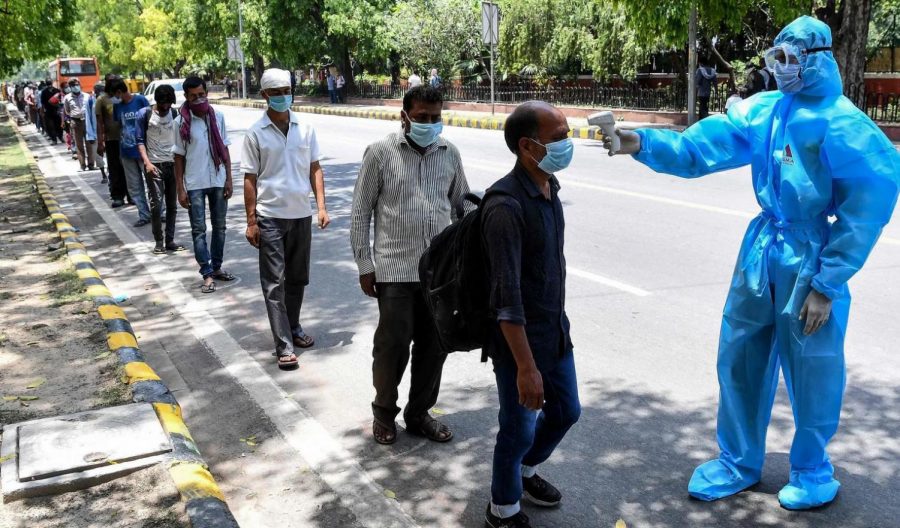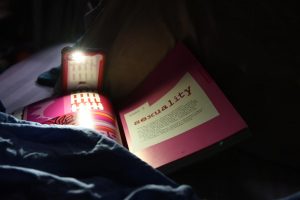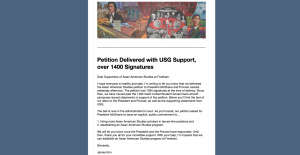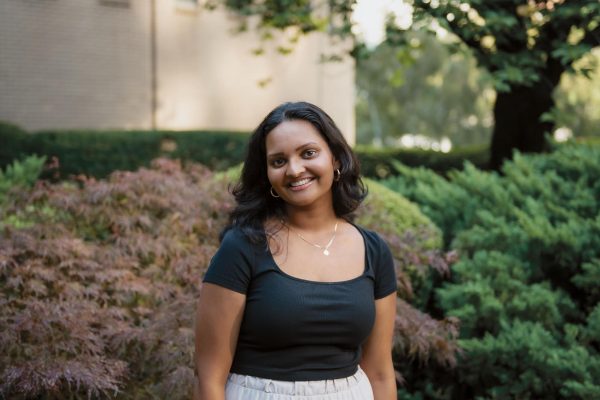Fordham Students React to India’s Deadly COVID-19 Surge
Indian students domestic and abroad respond to the rise in cases and Fordham’s lack of action
GWYDION M WILLIAMS VIA FLICKR
India is suffering from an increase in coronavirus cases and a lack of funding and space to alleviate the issue. Indian students at Fordham have voiced their frustration at the administration’s lack of response to the crisis.
May 29, 2021
The health care system of India is overwhelmed by an increase in COVID-19 cases as the country faces a shortage of oxygen supply, hospital beds and ventilators.
Beginning May 5, India exceeded 400,000 cases per day, and more than 240,000 have been reported dead, according to official reports. Unofficial figures are likely to be much higher.
On March 25, 2020, India’s Prime Minister Narendra Modi introduced a nationwide lockdown, imposing some of the harshest restrictions to quell the spread of COVID-19. Despite the absence of centralized preparation and the occasional uptick in cases, the country and its leaders had assumed that they had avoided the damage endured by other large democracies.
The Biden administration announced that it would restrict travel from India to the U.S. beginning on April 30, 2021. Since then, there has not been an update as to when the ban will be lifted.
Inika Mishra, Gabelli School of Business at Lincoln Center (GSBLC) ’24 and an international student from Gurugram, India, noted the travel restrictions do not impact her personally because she intends on staying on campus over the summer. However, she highlighted that Indian students attempting to travel back will be forced to stay in the U.S. without any visitations from their families.
Resham Sansi, GSBLC ’21, who is of Indian descent, mentioned her grandfather who is attempting to apply for a visa to visit the United States and is currently navigating the travel restrictions alongside a challenging immigration process.
“Our government handled the situation well. But now with the new strain of the virus, it’s getting hard to manage.” Resham Sansi, GSBLC ’21
Sansi said that her family in Mumbai, India, is struggling as the situation worsens, noting that numerous COVID-19 precautions are a privilege that the lower class cannot practice.
“For a lot of people in India, social distancing, hand sanitizers and more is extremely a privilege and safety differs so much by class divide,” she said.
Mishra said that her family in India is attempting to stay home as much as possible. She mentioned that the virus impacts lower-income Indians in densely populated areas who cannot access government hospitals operating at max capacity or adequate health care the most.
“Private hospitals are not affordable,” she said. “Our government handled the situation well. But now with the new strain of the virus, it’s getting hard to manage.”
Despite the warning signs from public health officials, the Modi government encouraged massive religious gatherings and held political rallies.
India’s Central Governments Messaging and Management
Following phase-1 of the lockdown enacted in March 2020, India maintained relatively low death tolls. Public health experts attributed the country’s success to its comparatively young population or possible immunity among lower-income communities from past viruses.
Prime Minister Modi of the Bharatiya Janata Party (BJP) hailed India as a COVID-19 success story. His optimism was met with the relaxing of COVID-19 precautions by state governments.
Despite the warning signs from public health officials, the Modi government encouraged massive religious gatherings and held political rallies.
As Indians in the U.S. and abroad spread awareness about the crisis in India and criticized the actions of the BJP government, Modi and state government leaders silenced them.
“The Modi government’s doing its best. India can handle this. We were doing great the whole year.” Inika Mishra, GSBLC ’24
Mishra believed that the Modi government’s response was adequate and that India was adept at handling the situation without external assistance.
“The Modi government’s doing its best,” she said. “India can handle this. We were doing great the whole year,” she said.
Srivatsan Senthilkumar, Fordham College at Lincoln Center ’21 and an Indian American, perceived the uptick as more of a result of the BJP government’s mishandling of the virus than an inevitable third wave primarily impacting the poor. He cited the large gatherings, electoral rallies, lack of mask-wearing or social distancing, and underreporting of the official COVID-19 tolls.
“I think that they’ve done a terrible job out of self-interest, and I’m certain that the parts of Indian society that they want to exploit and oppress will bear an unfair amount of loss from covid too,” he said.
The United States’ Initial Hesitance to Distribute Vaccines and Supplies
As the crisis worsened in April 2021, India requested raw materials from the United States. A senior State Department official denied the request, citing the Biden administration’s responsibility to the American people.
Met with swift backlash, the administration then agreed to send medical aid as the country became the pandemic’s epicenter.
Senthilkumar expressed guilt as an Indian American balancing conflicting emotions as he celebrated improved conditions in the U.S. while witnessing extreme suffering in India.
“While I’m happy about the US getting better and NYC especially finally feeling closer to normal, I think there is a duty to now help out other countries with the privileges that the US has.” Srivatsan Senthilkumar, FCLC ’21
“I feel conflicted because I want to just celebrate the loosening restrictions and being fully vaccinated. However, I can see that covid is far from over throughout the world and do feel guilty when so much of India is currently suffering,” he said.
He added that the United States has an obligation to assist other countries when they specifically request aid.
“While I’m happy about the US getting better and NYC especially finally feeling closer to normal, I think there is a duty to now help out other countries with the privileges that the US has,” he said.
Sansi categorized the United States’ prior denial of raw materials as capitalistic and unhumanitarian.
“We have extra resources and yet refuse to donate them because we wouldn’t be making money, while there are multiple people who could be saved if this was not the mindset,” she said.
“Fordham could release a statement, but at that point, it would just be a performative act of faith, as it could be an emotional support letter, but in reality would have little impact.” Resham Sansi
Fordham’s Response to India
Fordham has yet to release a statement on the worsening conditions in India. In an email to the Fordham community, Campus Ministry offered prayers for India and provided a link for donations.
Mishra said she does not anticipate any mental or emotional support provided to international students by the university.
Given Fordham’s statements in the past, Sansi stated she would appreciate an acknowledgment of the health crisis by Fordham but believed that it would be performative and serve no substantial impact.
“I think Fordham could release a statement, but at that point, it would just be a performative act of faith, as it could be an emotional support letter, but in reality would have little impact. I would rather Fordham take action in a tangible way against this crisis,” she said.
Senthilkumar also welcomed the statement but believed that the administration’s statements were merely ceremonial.
“I think it would be nice for Fordham to do so, but Fordham is often all words and no action. I think, either way, I don’t expect too much from the Fordham administration,” he said.
Sansi mentioned that the deadly COVID-19 surge in India hadn’t been covered in the media to the extent that crises in Western countries have.
“I would also hope non-Indians really think about how many Indians wish they could have access to the vaccine right now. I hope people see this is a reason to get vaccinated and appreciate the privilege of access to vaccination.” Srivatsan Senthilkumar
”The country’s health care system has been stretched beyond breaking point, and it is something that should involve national agencies like the UN stepping in because if we don’t help people at their worst, then what is the point,” she said.
Senthilkumar underscored the universality of the crisis in India, with the spread of variants affecting individuals outside of the country. He also urged Americans to understand the privilege that comes with access to vaccines.
“I think one of the biggest takeaways should be that this isn’t just an Indian issue. It definitely has consequences on the entire world and everyone collectively plays a part in how the pandemics progress,” he wrote. “I would also hope non-Indians really think about how many Indians wish they could have access to the vaccine right now. I hope people see this is a reason to get vaccinated and appreciate the privilege of access to vaccination.”
















